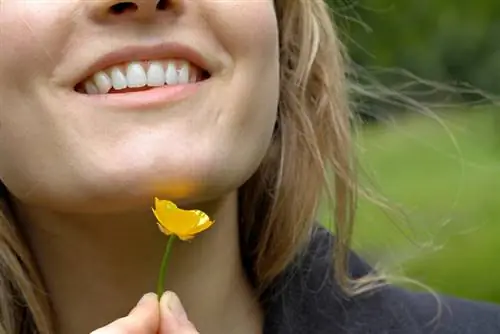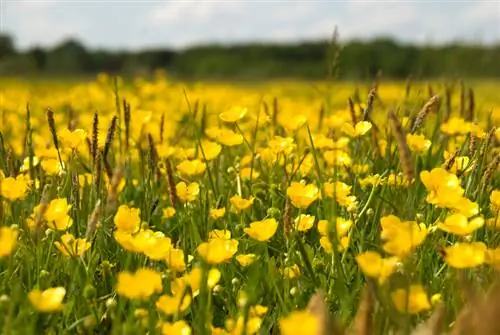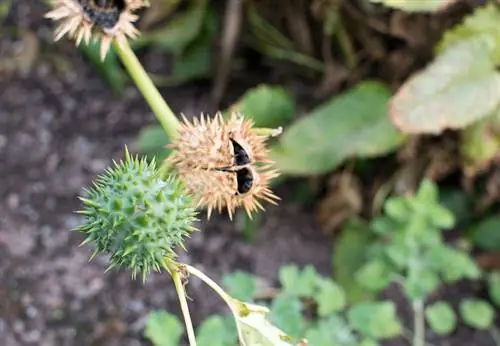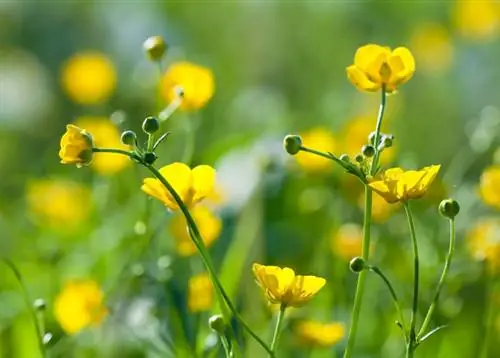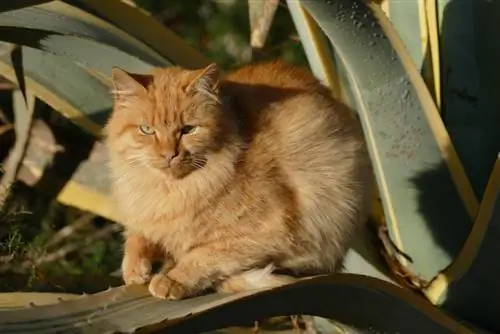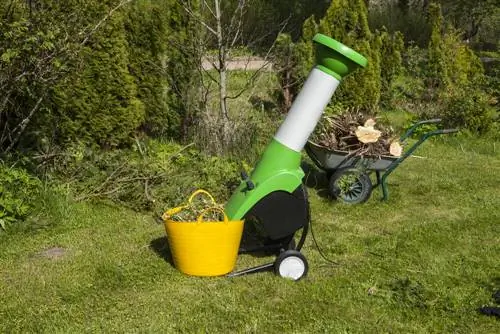- Author admin leonars@hobbygardeners.com.
- Public 2023-12-16 16:46.
- Last modified 2025-01-23 11:20.
Ranunculus, also known as buttercup, is considered a poisonous plant. The poison content is not very high. Symptoms of poisoning occur primarily in certain species, namely humans and animals. Caution is therefore advised on pastures and when collecting food for pets.
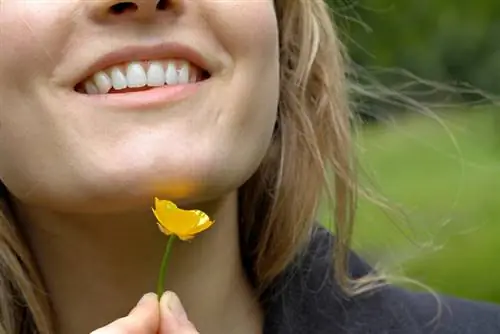
Is buttercup poisonous to people and animals?
Buttercup, also known as buttercup, is poisonous because all parts of the plant, especially flowers and roots, contain the toxin protoanemonin. Symptoms of poisoning upon skin contact or consumption include skin redness, itching, vomiting, diarrhea, dizziness, convulsions and paralysis.
Some poisonous buttercup species
- Spicy buttercup
- Burning Buttercup
- Bulb buttercup
- Poison Buttercup
Which parts of the plant are particularly poisonous?
All parts of the plant, but especially flowers and roots of the buttercup, are poisonous. Therefore, when fighting buttercups in the garden, do not leave any plant parts lying around.
The toxin in buttercups is protoanemonin.
Symptoms of poisoning can occur directly from plant sap on the skin. Therefore, children should be encouraged not to pick the buttercup.
Symptoms of poisoning upon skin contact and consumption
Skin contact with buttercups can cause skin redness, itching and blistering, known as buttercup dermatitis.
When consuming larger quantities of buttercups, the following occur:
- Vomiting
- Diarrhea
- Dizziness
- Cramps
- Paralysis
If buttercup juice has come on the skin, the affected areas should be rinsed well with clear water. If the plant has been consumed, it is advisable to go to the doctor. He will usually initiate detoxification through charcoal and other appropriate measures.
Animals don't tolerate buttercups either
Ranunculus is spreading rapidly in pastures for horses, cattle and sheep. Most animals avoid the poisonous herb. But if the pasture has already been grazed, animals also eat buttercups.
Pets must not be fed fresh buttercups. If you collect fresh herbs in nature, be careful not to pick any buttercups.
Tip
Dried buttercup is no longer poisonous. Even if parts of the plant end up in animal feed, there is no longer any danger. Nevertheless, when collecting food for pets, the proportion of buttercups should be kept as low as possible.

